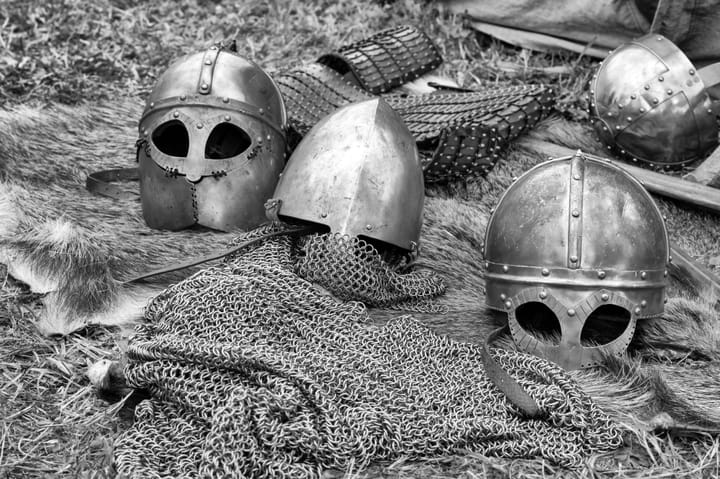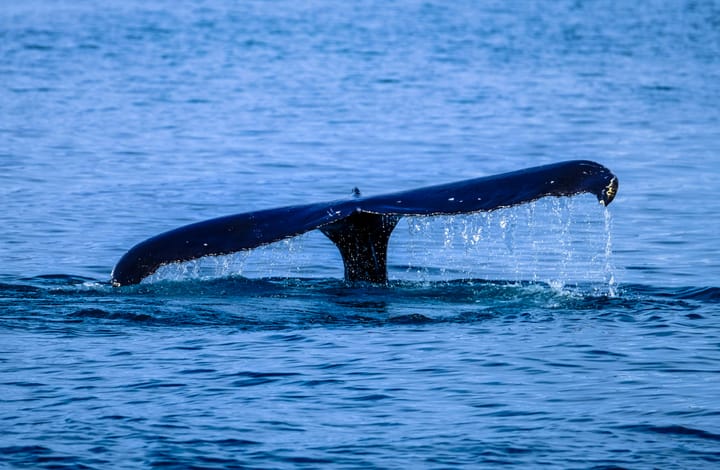Wilding – Isabella Tree, Picador (2018) & Regenesis – George Monbiot, Penguin Random House (2022)

At their core, these two books reach a similarly stark conclusion. Our diets, and the farming practices which enable them, need a dramatic make-over. Both authors set out their own transformative visions for ecologically sustainable food production.
Wilding, by Isabella Tree, describes a pioneering project to rewild a 3500-acre manor in West Sussex. Set at Knepp, an aristocratic estate, Wilding is a story about agricultural development in reverse. It's also a call for UK environmental reform.
Forced to accept that profits from intensive farming were too unpredictable, Isabella Tree and her husband Charlie Burrell made a bold choice in the early 2000s: they (largely) stepped back from land management and let nature take its course.
Following the removal of 70 miles of internal fences and the introduction of free-roaming cattle, pigs and deer – much of which is sold off as meat – the ‘Knepp experiment’ triggered an extraordinary return of wild flora and fauna to the estate, and the surrounding area.
With welcome detail, Tree also chronicles the hostile reaction to the project. One local farmer expressed dismay at the “ruination of once productive farmland.” For traditionalists, re-wilding Knepp was tantamount to undoing the labour of previous generations.
In the years after WWII, European farmers were encouraged – through subsidies – to maximize land use. But industrial farming, which only took off in the 1960s, requires large amounts of pesticides and fertilizers.
While these chemicals have been shown to degrade soil and human health, the move away from pasture towards mechanized farming has led humanity down a path of entrenched crop consumption. In short, more grains facilitate more meat.
Globally, forty percent of grain is used to feed humanity’s growing demand for meat. To make way for crops and cows, however, forests, wetlands and savannahs (and the biodiversity found within them) have been systematically razed.
What’s more, the under-published reality of global food production is that we currently make enough for 10-14 billion people. The shocking subtext is that at least one-third of our food – 1.3 billion tonnes per year – is discarded (despite rising levels of extreme hunger).
Predictably, re-wilding lowered Knepp’s agricultural output. But the estate became a functioning ecosystem again, teaming with naturally regulated life. Knepp’s soils, moreover, became better at capturing C02 than nutrient-poor, chemically-laden land.
In her book, Tree attempts to show how organic farming and wildlife can be reconciled. George Monbiot, however, illustrates that if livestock production at Knepp’s scale were replicated across the UK, it would equate to just three meaty meals per Briton per year.
Essentially, organic meat farming suffers from a yield gap, meaning more land is needed to produce the same amount of food. Absent the extra land, prices will remain high – more than most consumers can afford to spend.
While Monbiot recognises Knepp as a rewilding success, he pours scorn over its meat-producing potential. He goes one step further, calling for an entirely meat-free, plant-based diet. And his justification is not solely based on income inequality.
His first argument relates to large-scale animal farming, and the crop production that goes with it. Both involve a radical simplification of natural ecosystems. According to Monbiot, supporting human meat consumption inflicts an ecological opportunity cost.
If we stopped eating meat and dairy and switched to a plant-based diet, we could reduce the amount of land used for farming by 76%. If that land were successfully rewilded, it would sequester the last 16 years worth of global CO2 emissions from the atmosphere.
His second argument is directed at small-scale ‘organic’ animal husbandry. He suggests that grazing, even on rewilded land, destabilises soil health and undermines species diversification, corrupting the entire re-wilding (and carbon storage) process.
But he does concede that humans still need to eat protein. Where Tree sees value in pre-industrial farming practices, Monbiot observes socio-environmental pitfalls. Instead, he attempts to make a case for precision fermentation.
This process, of modifying microbial bacteria in vats with a tiny land and water footprint, could make protein widely and cheaply available. According to Monbiot, it would release the land currently needed to produce meat for the purposes of mass re-wilding.
Both authors admit that large-scale grain production is necessary to feed humans. They also agree that these crops should not be used to feed livestock. But where Tree spies an opportunity to share wild spaces with animals, Monbiot wants to spare them altogether.
Scrapping meat entirely (and the farmers who provide it) seems improbable, so Tree’s proposal – though inequitable – is more realistic. But their positions remain broadly similar. They both make compelling cases to re-wild much of the world's industrially farmed land.


